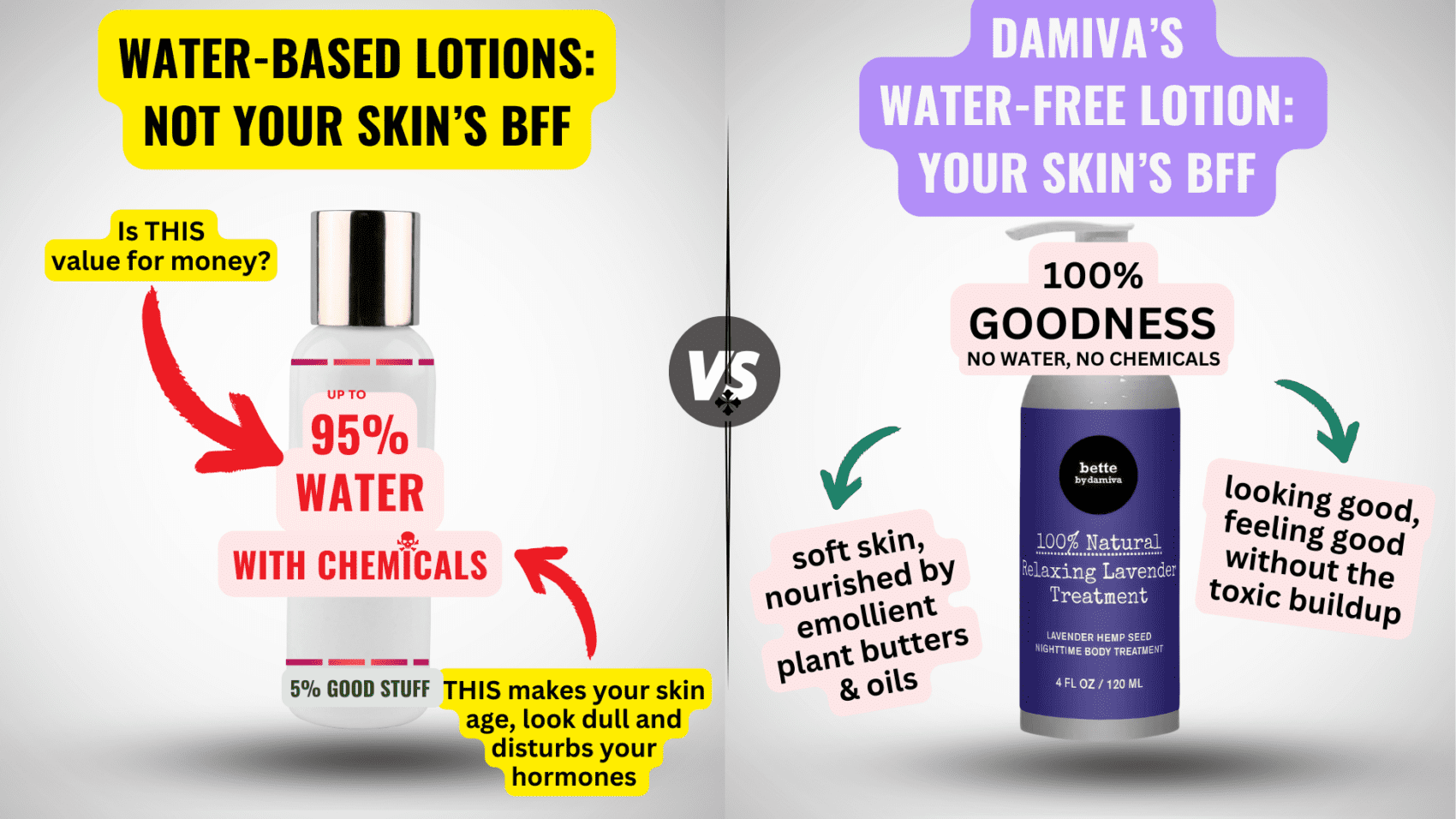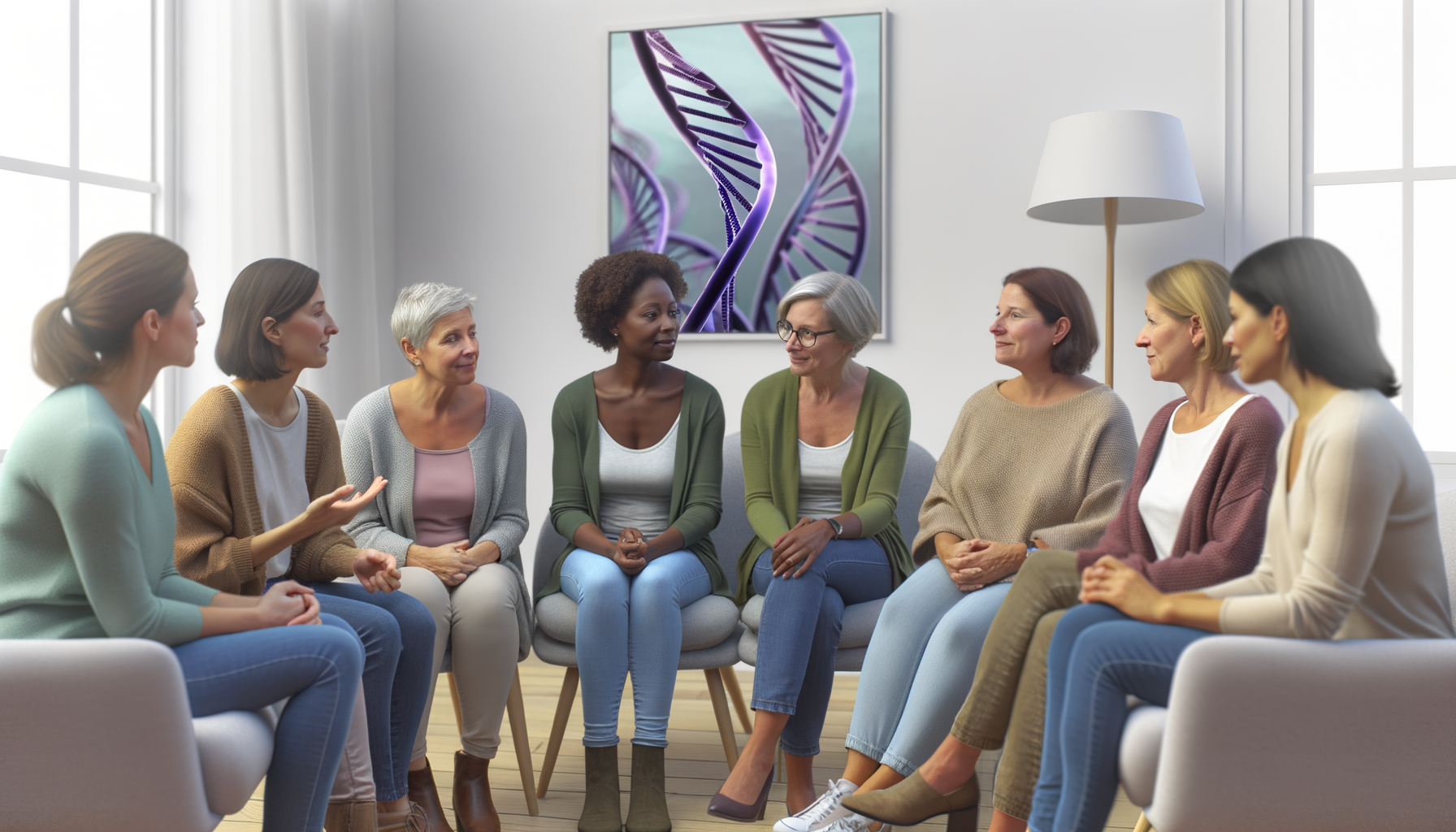Menopause and Genetics
Menopause is a natural biological process that marks the end of a woman’s reproductive years. Typically occurring between the ages of 45 and 55, menopause is diagnosed after 12 consecutive months without a menstrual period. This transition, often accompanied by symptoms such as hot flashes, night sweats, and mood changes, is primarily driven by a decline in the production of the hormones estrogen and progesterone by the ovaries. While menopause is a universal experience for women, the age of onset, symptom severity, and duration can vary significantly from person to person.
The Role of Genetics in Menopause
Genetics play a crucial role in determining the menopausal experience. Research suggests that approximately 50% of the variability in the age of natural menopause onset is attributed to genetic factors. Genes inherited from both parents contribute to the timing of menopause, with certain genetic markers being associated with earlier or later cessation of menstruation. Moreover, specific genetic variations can influence the intensity and type of menopausal symptoms experienced, highlighting the importance of understanding one’s genetic predisposition to tailor management strategies effectively.
Comparing Menopause Experiences Within Families
Observing menopause experiences within families can provide valuable insights into the potential genetic influences on menopause. It is not uncommon for women to draw parallels between their menopausal journey and that of their mothers or sisters. While there is no guarantee that the age of menopause onset or symptom profile will be identical among family members, familial patterns can offer clues. Studies have shown that women with a family history of early menopause may be more likely to experience a similar trajectory. However, it is essential to consider that environmental factors and lifestyle choices also significantly shape the menopause experience, and these can differ even among close relatives.
Genetic Blueprint and Its Impact on Menopause
What Are Genes and How Do They Function?
Genes are the fundamental units of heredity, acting as the blueprint for every characteristic and function within an organism. Structurally, they are segments of DNA, each consisting of a unique sequence of nucleotides that encode the instructions for synthesizing proteins. These proteins perform a myriad of functions, from building cellular structures to regulating biological processes. In essence, genes determine how our bodies look and function, and they are inherited from our parents, providing a genetic link to our ancestry.
Genetic Variations and Their Influence on Health
While genes provide the basic instructions, genetic variations or mutations can influence how these instructions are carried out. Variations can be benign, harmful, or beneficial, impacting an individual’s susceptibility to diseases, response to medications, and overall health. Some health conditions are monogenic, meaning they are caused by mutations in a single gene. However, most health-related traits, including menopause, are polygenic, involving the interplay of multiple genes and environmental factors.
Polygenic Nature of Menopause
Menopause is a complex trait influenced by numerous genes, each contributing a small effect to the timing of menopause onset and the experience of menopausal symptoms. Studies have identified several genetic variants associated with the age of natural menopause, suggesting that women with a higher number of specific genetic markers may experience menopause earlier than average. However, the polygenic nature of menopause means that predicting the exact timing and symptomatology based on genetics alone is challenging. The interplay between these genetic factors and lifestyle, health, and environmental influences ultimately shapes each woman’s menopause experience.
Understanding the genetic underpinnings of menopause is not only of academic interest but also has practical implications for women’s health. By recognizing the genetic components, healthcare providers can offer more personalized advice and treatment options. Moreover, ongoing research into the genetic aspects of menopause continues to reveal new insights, potentially leading to improved management strategies for the symptoms and health risks associated with this natural transition in a woman’s life.

Correlation Between Maternal Menopause and Offspring
Age of Menopause Onset: Is It Hereditary?
One of the most intriguing questions in the study of menopause is whether the timing of this transition is influenced by hereditary factors. Research indicates that there is indeed a genetic component to the age of menopause onset. Studies have shown that women whose mothers experienced early menopause are more likely to also have an earlier menopause themselves. Conversely, a later menopause in mothers tends to predict a later menopause in daughters. This suggests that the timing of menopause can be, at least in part, inherited.
Predictive Value of Family Menopause History
The history of menopause within a family can serve as a valuable predictor for an individual’s menopausal experience. Observational data suggest that there is a significant correlation between the age at which a woman’s mother entered menopause and the daughter’s age of menopause onset. This familial pattern offers a potential tool for anticipating the timing of menopause, although it is not an absolute determinant. The predictive value of family history is a compelling argument for the inclusion of genetic counseling and history-taking in discussions about menopause and reproductive planning.
Paternal Contributions to Menopause Timing
While maternal lineage is often the focus of genetic inheritance studies in menopause, emerging evidence suggests that paternal factors may also play a role. The genetic contributions from the father’s side, although less well-studied, could influence the daughter’s reproductive lifespan. This includes the paternal age at conception, which has been linked to the timing of menopause in offspring. However, the mechanisms by which paternal genetics might influence menopause timing are not yet fully understood, and further research is needed to elucidate these complex hereditary patterns.
By the way, something for you, a little gift!!!
I am just in the middle of publishing my book. It’s about How women can balance their hormones. One part is about food and diet, of course.
Follow this link and enter your email.
I will send you this part of the book for free once the book is published. It has many concrete, practical tips and recipes and will help you feel better during menopause or times of Big hormonal fluctuations.
Annette, Damiva Lead for Health & Wellness

External Factors Affecting Menopause
Lifestyle and Health Choices
The journey through menopause is not solely dictated by genetics; lifestyle and health choices play a pivotal role in shaping the experience. Smoking, for instance, has been linked to an earlier onset of menopause, while physical activity may delay its arrival. Dietary habits, including the consumption of polyunsaturated fats and alcohol, also influence menopausal timing. Moreover, body mass index (BMI) is a significant factor, with higher BMIs associated with later menopause. These modifiable factors offer women an opportunity to potentially influence their menopausal timeline through conscious health decisions.
Environmental and Psychological Influences
Environmental factors, such as exposure to endocrine-disrupting chemicals or variations in sunlight exposure, have been implicated in the timing of menopause. Psychological stress, too, can affect hormonal balance and potentially alter menopausal timing. Understanding these environmental and psychological influences is crucial for women seeking to navigate this transition with greater ease and awareness.
Cultural Perceptions and Discussions on Menopause
The cultural context in which a woman experiences menopause can significantly impact her perception of this life stage. Societies that view menopause positively or as a natural transition may foster a more supportive environment, potentially alleviating the psychological burden. In contrast, cultures that stigmatize menopause may exacerbate symptoms through added stress and social pressures. Open discussions and education about menopause can empower women, promote better coping strategies, and challenge negative stereotypes, ultimately influencing the menopausal experience on a societal level.
Genetic Conditions Linked to Menopause Timing
Understanding X-autosomal Translocations
X-autosomal translocations refer to a situation where a piece of an X chromosome has exchanged places with a piece of an autosome (any chromosome that is not a sex chromosome). While such translocations can often go unnoticed and may not cause any apparent issues, they can sometimes lead to early menopause. This is because the translocation can disrupt the normal functioning of genes that are crucial for ovarian development and function. The prevalence of X-autosomal translocations in the general population is relatively low, but they are more commonly observed in women who experience premature ovarian failure (POF).
Turner Syndrome and Its Effects
Turner Syndrome is a condition that affects approximately 1 in 2,000 women, where an individual has only one fully functioning X chromosome instead of two. This chromosomal abnormality can lead to a variety of developmental issues, including short stature and heart defects. One of the most significant impacts of Turner Syndrome is on ovarian function. Most women with Turner Syndrome experience POF, leading to early menopause. Since Turner Syndrome usually arises as a new mutation, it is not typically inherited and does not commonly run in families.
Other Genetic and Autoimmune Conditions
Aside from chromosomal abnormalities, other genetic and autoimmune conditions can contribute to the timing of menopause. Approximately 5% of cases of premature menopause are thought to be linked to autoimmune disorders such as thyroid disease or rheumatoid arthritis. These conditions can lead to the body mistakenly attacking its own ovarian tissue, resulting in early menopause. Additionally, certain genetic conditions, such as Fragile X syndrome, can increase the risk of POF. Type 2 diabetes, which has both genetic and lifestyle components, can also increase the risk of early menopause. It is important to note that while these conditions can influence menopause timing, they are only part of a complex interplay of factors that determine when a woman will experience menopause.

THEN IT CONTAINS TOXIC CHEMICALS. WHY RISK IT GETTING SICK? GO CHEMICAL FREE.
The Debate on Genetic Testing for Menopause
Current State of Genetic Testing for Menopause
The quest to understand the intricacies of menopause has led to an exploration of genetic testing as a potential tool for predicting this significant life transition. As of now, the landscape of genetic testing for menopause is still in its infancy. Despite the identification of certain genetic markers that may indicate a predisposition to early or late onset menopause, there is no definitive test available that can accurately predict when a woman will experience menopause. The complexity of the genetic factors involved, combined with environmental and lifestyle influences, makes the development of such a test challenging.
Complexities in Predicting Menopause Through Genetics
Menopause is a polygenic trait, meaning it is influenced by multiple genes, as well as a range of non-genetic factors. The interplay between these genes and various external factors adds layers of complexity to the prediction of menopause onset. For instance, lifestyle choices like smoking and body mass index have been shown to impact menopausal timing, potentially confounding genetic influences. Moreover, the genetic contribution to menopause is not fully understood, with studies suggesting that known genetic variants account for only a fraction of the variation in menopausal age. This incomplete picture complicates the use of genetics as a predictive tool for menopause.
The Future of Personalized Menopause Care
Despite the current limitations, the future of personalized menopause care holds promise. Advances in genomics and a deeper understanding of the genetic underpinnings of menopause may one day allow for tailored approaches to managing menopausal symptoms and associated health risks. Personalized care could involve genetic screening to identify women at risk for certain conditions related to menopause, such as osteoporosis or cardiovascular disease, enabling earlier intervention and customized treatment plans. However, the ethical implications of genetic testing, including privacy concerns and the potential for discrimination, must be carefully considered as this field evolves.
In conclusion, while the potential for genetic testing to revolutionize menopause care is evident, significant research and ethical considerations remain. As science progresses, the hope is that women will benefit from more accurate predictions and personalized management of their menopausal journey.
Symptom Similarities and Differences in Menopause
Will You Experience the Same Symptoms as Your Relatives?
When it comes to menopause, many wonder if they will mirror the experiences of their relatives. While certain traits like hair color and height are easily spotted as familial traits, menopause symptoms are not as straightforward. The genetic component to menopause does suggest that if your mother experienced early menopause, there may be a chance you will too. However, this is not a definitive rule. The polygenic nature of menopause means that a combination of genes from both your mother and father, as well as lifestyle and environmental factors, play a role in determining when and how you will experience menopause.
Genetic Markers and Menopause Symptoms
Research has begun to uncover genetic markers that may predict not only the timing of menopause but also the type and severity of symptoms. For instance, variations in the SULT1A1 gene, which is involved in estrogen metabolism, have been linked to the age of menopause onset and specific symptoms like night sweats and sleep disturbances. However, it’s important to note that these findings are still in their infancy. The relationship between genetics and menopause symptoms is complex, and while there may be similarities in symptoms within families, each individual’s experience can vary widely due to a multitude of factors.
Ongoing Research and Its Implications
Ongoing research into the genetic underpinnings of menopause is crucial for the future of personalized menopause care. As scientists continue to unravel the genetic contributions to menopause, there is hope that one day, genetic testing could offer predictions about an individual’s menopausal timeline and symptomatology. This could lead to more tailored approaches to managing menopause, including preventative strategies and targeted treatments. However, the current state of research underscores that while genetics are a piece of the puzzle, they do not provide a complete picture of what any one individual can expect during menopause.
In conclusion, while there is a genetic aspect to menopause that may influence when and how you experience it, the presence of external factors and the polygenic nature of the condition mean that there is no certainty that your experience will be the same as your relatives’. Understanding the role of genetics in menopause is an evolving field, and future research may provide more insights into how we can predict and manage this significant life stage.










